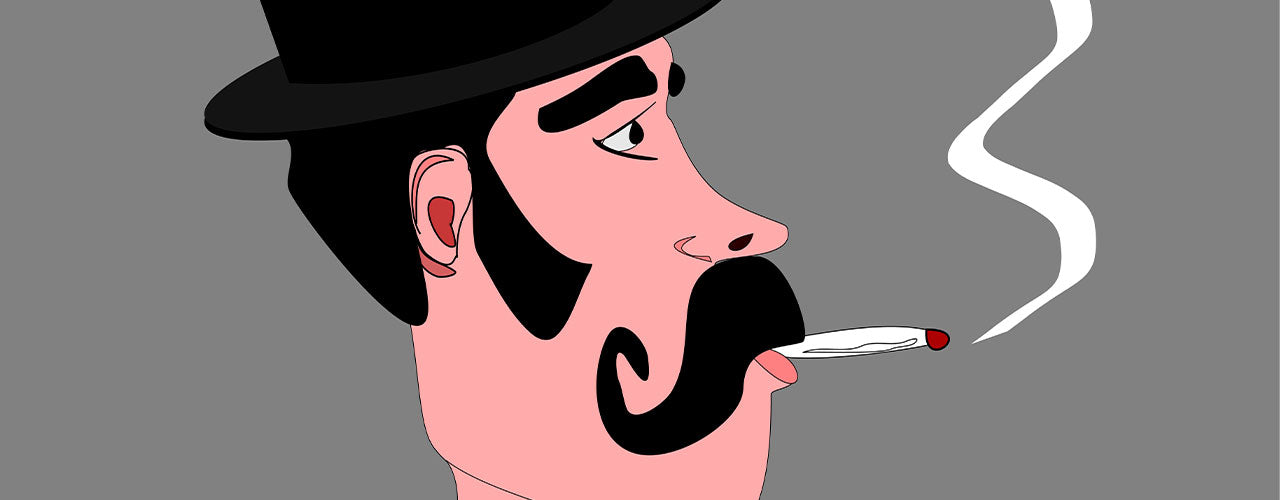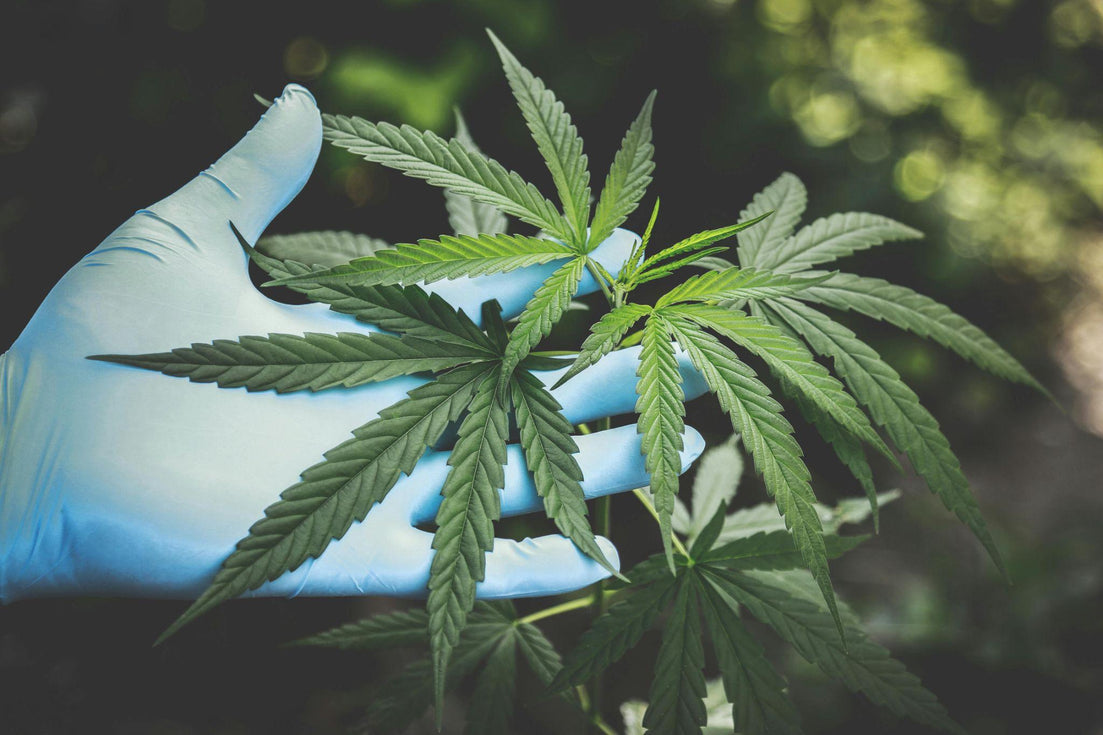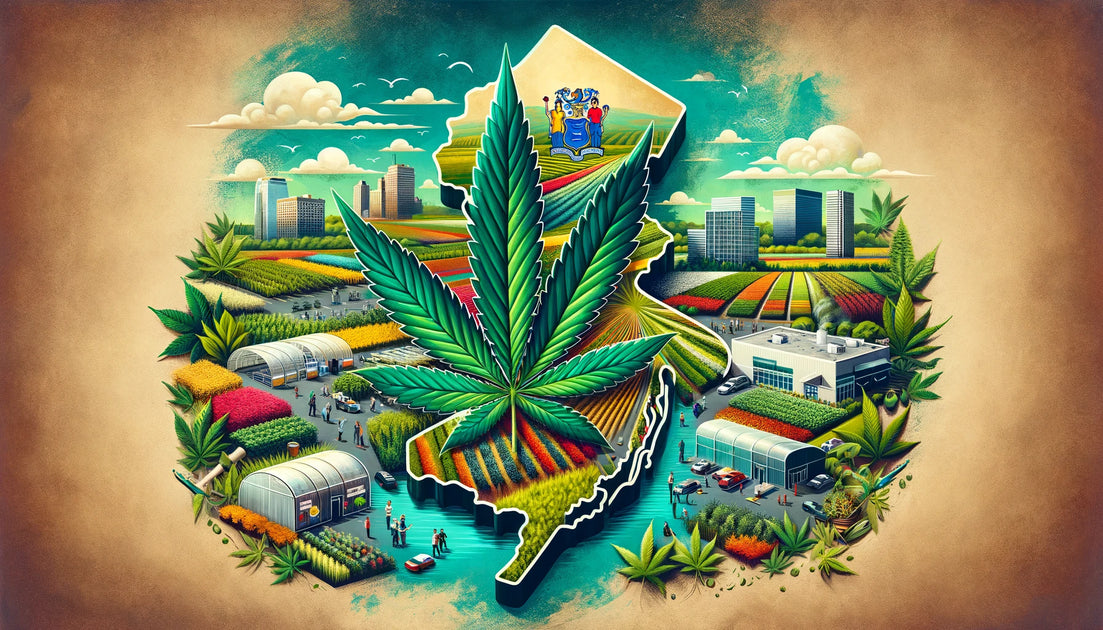Your cart is currently empty.

Depression affects nearly 15 million people in the United States alone. While there are a lot of pharmaceutical options available, many patients don’t see results from them, adapt to them so they have to take more and more, or experience intolerable side effects from them. Science has, luckily, found a better alternative: cannabis.
In this article, we’ll explore how cannabis can be used as an effective, natural treatment for depression.
What is Depression?
We often use the term depression far too easily. While everyone has a tendency to feel down once in a while, depression is something far different. Clinical depression is a mood disorder that affects every aspect of your life. Those that suffer from depression struggle with chronic low mood and experience significant depressive episodes at points throughout their lives.

This aesthetically pleasing picture of the tools needed for an average smoke session is brought to you by @weedvshash
Depression eats away at your energy and your ability to feel. You become numb and full of self-judgment. One of the worst parts is that it’s not the easiest to tell when you slip into one of these episodes.
The following are common symptoms of depression:
- Fatigue - often extreme
- Disinterest in things you love
- Disinterest in hygiene
- Headaches
- Unexplained chronic pain
- Decreased self-worth
- Self-harm
- Irritability
- Digestive issues
Chronic Stress, Depression, and Cannabis
Chronic stress is known to be one of the major causes of depression. Scientists have found in various studies that stress decreases endocannabinoids, the part of our body that reacts with the compounds found in cannabis. These endocannabinoids have a wide range of important functions within the body like regulating sleep, mood, appetite, and even certain parts of your immune system.

Cannabis can help to put a smile on your face despite depression. Photo by @curly._.fried
The endocannabinoid system helps to regulate your body and maintain balance. When you’re depressed or struggling with chronic stress, cannabis can help to restore your endocannabinoid system to normal, stabilize your mood, ease your depression, and ease your stress.
Depression, Brain Inflammation, and Cannabis
Research has found that, during depressive episodes, inflammation can increase in the brain. When this inflammation occurs, the immune system kicks itself into gear, thinking it’s fighting off a chronic infection, as that is typically the cause of brain inflammation.
There are a lot of factors that can contribute to the end result of this inflammation, be it depression or something else. Luckily, cannabis can help fight that inflammation. In a 2014 study, scientists at Tel Aviv University discovered that low doses of THC can reduce swelling in the brain.

Smoking weed can help reduce inflammation in the brain and in the body, helping to ease depression. Photo by @smokebreaklive
Decreased inflammation in the brain also means decreased depression. As the inflammation goes down, your immune system stops going into attack mode and your brain gets a chance to heal itself and recover from the stress.
Other Ways Cannabis is Effective in Treating Depression
In addition to reducing inflammation, cannabis does a few other things to help ease depression.
Sleep
There are two ways that depression can affect a person’s sleep: cause them to sleep too much or keep them from sleeping at all. If you’re a person who can’t sleep because of depression, cannabis can help. Cannabis, particularly indica strains, can help ease insomnia. Poor sleep can increase the inflammation in your brain, causing your depression to worsen.
Appetite
Depression causes most patients to not eat when they're depressed, though some overeat or eat junk food. Believe it or not, cannabis can help with both of these; it all just comes down to which strain you pick. Research has shown that CBD, a cannabinoid found in marijuana that can be extracted and used on its own, is a minor appetite suppressant. This means that it can help you to stop overeating, without killing your appetite entirely.

Marijuana can help stabilize your appetite. This awesome photo comes from @hulksmashfood
THC, on the other hand, helps to increase your appetite. So, if you belong to the first group that struggles to eat when they’re depressed, look for a strain that has a high THC content to help regulate your appetite and get you back to eating normally.
Pain
As we mentioned before, chronic pain is often a symptom of depression. Cannabis is notorious for its pain-relieving abilities. Whether you choose to go the topical lotion, edible, or smoking route, marijuana can be a powerful pain reliever.
Cannabinoids Broken Down
There are a total of over 400 cannabinoids in cannabis, but there are two major ones that are highly effective in treating depression: CBD and THC. Let’s break down how each of them works in your brain to help you treat your depression.
THC
THC, the psychoactive component in marijuana, is helpful to some with depression but not everyone. You have to be careful when using THC to treat depression, as too high of dosages on it can actually cause a lower mood. Low doses of THC, however, has been found to increase the amount of serotonin your brain produces. However, new studies have hinted that this might have been a false correlation.

This beautiful photo comes from @lifteddladies
The best way to go with THC is to try it for yourself, starting at low doses and working your way up. Each patient is different, so THC might not help your depression at all or it may help it immensely. Keep an open mind and try not to get fooled by the placebo effect.
CBD
CBD, a non-psychoactive cannabinoid in cannabis, has been proven to be an effective anti-epileptic, anxiolytic, antipsychotic, and antidepressant. It can be a highly effective treatment for both depression and pain without any of the anxiety- or paranoia-inducing properties that THC has.

CBD comes in many forms, but most popular is vaping. Photo by @angelbaby_vapes
CBD is also extremely fast-acting. A study conducted in April 2019 found that CBD had rapid antidepressant qualities. Not only is CBD fast-acting, but its effects are also long-lasting. Research has shown that CBD can reduce anxiety and depression symptoms quicker than any other antidepressant available on the market.
Best Strains to Treat Depression
There are many strains that are effective in treating depression. Everyone’s different, however, so it may take some trial and error to determine which strain works best for you.
CBD-Dominant
The following strains are CBD-dominant; that does not mean that they don’t contain THC like CBD infused products, but they have more CBD than THC:
- Cannatonic
- Harlequin
- ACDC
- Sour Tusnami
THC-Dominant
The following strains are THC-dominant; they still contain all the other cannabinoids, but not in as strong of a dose as THC:
- Jack Herer
- Stress Killer (Royal Queen Seeds)
- Granddaddy Purple
- Dr. Grinspoon
Other Depression Treatments
There are many other, non-medical treatments that could help to minimize your depressive episodes.
Diet
Believe it or not, your diet can greatly affect your depression. Over 90% of the serotonin produced by your body is created and resides in the gut, which means your diet plays a big role in how much is produced. If you eat predominantly unhealthy foods, you’ll find yourself feeling low and sluggish.

Photo by @the_shrinkinggnome
The following foods are good for keeping your gut healthy and producing the right amount of serotonin:
- Fibers from plants (apples, pears, leafy greens, all vegetables, etc.)
- Onion, garlic, and leeks
- Jerusalem artichokes
- Fermented foods (kimchi, kombucha, sauerkraut, kefir, yogurt)
- Chamomile tea
- Capsules containing probiotics
Managing Your Stress
As we said early, one of the major causes of depression is stress. Those who experience high levels of stress and respond to stress poorly are more likely to experience depression. There are many suggestions for how to cope with your stress, but the following are a few of our favorites:
- Meditate and practice mindfulness
- Give yourself some time to yourself
- Schedule time off
- Take a yoga class
- Exercise more frequently
Therapy
Therapy is a great way to help you work through your depression, deal with your thoughts and feelings, and learn to cope with the symptoms. While therapy is never easy, it’s work worth doing that will help you better understand your feelings, yourself, and how you can better yourself.

Sometimes the best cure is talking with someone impartial and removed from the situation, like a therapist. Photo by @katecrocco
It’s important to note that cannabis cannot cure your depression. Like any other medicine used to treat depression, cannabis only treats the symptoms, making it easier for you to function in your daily life with this condition. In order to fully and effectively treat your depression, a combination of cannabis, the alternative treatments listed above, and potentially even an additional medication is needed.



